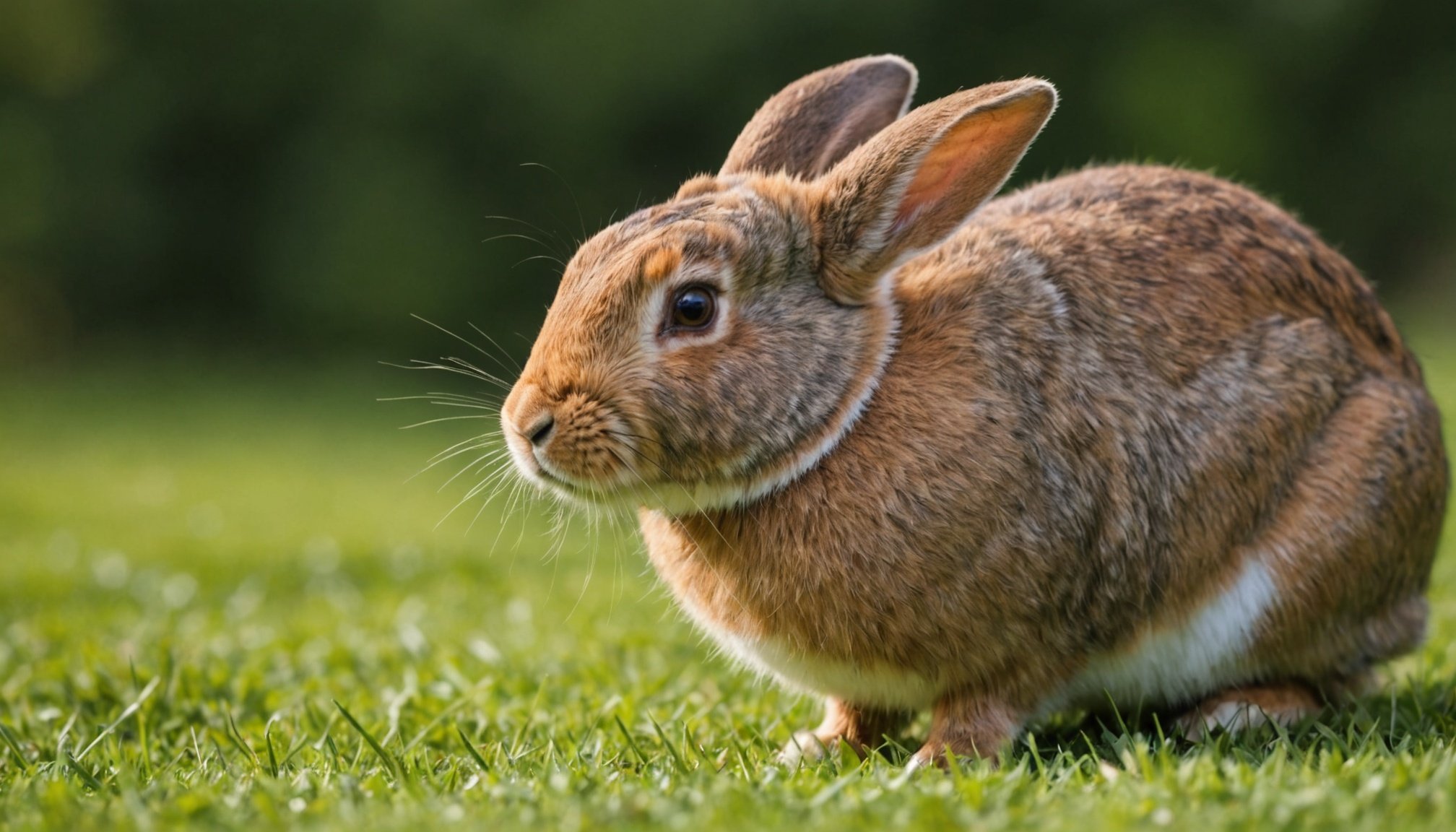Caring for an elderly rabbit with arthritis can feel overwhelming, yet it’s essential for their well-being. Rabbits thrive on proper care, tailored environments, and understanding their unique needs. By addressing diet, mobility, and comfort, you can improve their quality of life significantly. This guide offers essential tips for ensuring your furry companion remains happy and healthy in your UK home, allowing them to enjoy their golden years to the fullest. Ensure your rabbit gets the attention they deserve while managing arthritis effectively.
Understanding Arthritis in Elderly Rabbits
Exploring the challenges and solutions for elderly rabbit care.
Sujet a lire : Crafting the Perfect Balanced Vegetarian Diet for Your Adorable Guinea Pig
Common Symptoms of Arthritis
Arthritis in rabbits often manifests through subtle yet significant changes. Elderly rabbits may show signs such as reluctance to move, stiffness in joints, and difficulty in grooming. Observing these symptoms can be challenging, as rabbits are naturally adept at hiding discomfort. A bulleted list of symptoms includes:
- Decreased activity levels
- Limping or favoring one limb
- Struggling to climb or descend surfaces
- Changes in litter box habits due to discomfort
Importance of Early Detection
Early detection of arthritis in rabbits is crucial. Prompt diagnosis can significantly enhance the quality of life for your pet. Regular veterinary check-ups are essential, as they allow for early intervention. Diagnostic tools like X-rays can reveal joint deterioration, enabling timely treatment. As one expert notes, "The sooner arthritis is identified, the more effective the management strategies can be."
Dans le meme genre : Creating a Cozy Outdoor Haven: A Guide to Designing a Pet Duck Play Area in Your Small UK Backyard
Impact on Mobility and Health
Arthritis in rabbits affects not just mobility but also overall health. Reduced movement can lead to obesity, worsening joint stress. This creates a cycle of discomfort and inactivity. Caring for elderly rabbits involves creating a comfortable environment with easy access to food and water. Understanding these needs fosters a supportive setting, ensuring your pet's well-being.
Dietary Needs for Rabbits with Arthritis
Optimizing nutrition to support joint health and overall well-being.
Recommended Foods for Joint Health
A carefully tailored rabbit diet plays a crucial role in managing arthritis. Foods rich in Omega-3 fatty acids and antioxidants can help reduce inflammation and support joint health. Incorporating leafy greens like kale and spinach, alongside herbs such as parsley, can be beneficial. A balanced diet ensures that rabbits receive essential nutrients without excess calories, aiding in arthritis management.
The Role of Hydration
Proper hydration is vital for maintaining a healthy weight and supporting joint function. Ensure your rabbit has constant access to fresh, clean water. This helps prevent dehydration, which can exacerbate joint stiffness. Hydration also supports digestion, which is crucial for rabbits with arthritis, as it aids in nutrient absorption and weight control.
Importance of Fiber and Vitamin Supplementation
Fiber is essential in a rabbit diet to maintain digestive health and prevent obesity. High-fiber foods like hay should be a staple. Additionally, vitamin supplementation, particularly Vitamin C and E, can bolster the immune system and support joint health. Consult with a veterinarian to tailor supplements to your rabbit's specific needs, ensuring effective arthritis management.
- Omega-3 fatty acids
- Leafy greens
- Vitamin C and E supplements
Creating a Comfortable Living Environment
Enhancing the habitat for elderly rabbits with arthritis.
Adjustments for an Arthritis-Friendly Space
To ensure comfort for elderly rabbits, it's essential to modify their living environment. Begin by providing soft bedding to cushion their joints and alleviate pressure. Materials like fleece or memory foam can be ideal. Additionally, ensure that their housing includes ramps or gentle slopes to facilitate easy movement and reduce strain.
Importance of Easy Access
Access to food and water should be effortless for rabbits with arthritis. Place bowls at ground level to prevent the need for stretching or climbing. This adjustment can significantly improve their daily comfort and maintain their health. Creating a space where they can reach essentials without difficulty is paramount.
Safe Spaces for Rest and Mobility
Designate safe, quiet areas where your elderly rabbit can rest undisturbed. These spaces should allow for easy entry and exit, promoting both relaxation and mobility. Incorporate non-slip mats to prevent falls and ensure stability. By addressing these aspects, you create an environment that supports the rabbit’s well-being and encourages gentle activity.
- Soft bedding materials
- Ground-level food and water access
- Non-slip mats for stability
Implementing these changes can profoundly impact the quality of life for rabbits with arthritis, fostering a supportive and nurturing habitat.
Managing Pain and Medication
Tackling discomfort in elderly rabbits through effective strategies.
Common Medications and Treatments
Pain management for rabbits with arthritis often involves a combination of medications and treatments. Non-steroidal anti-inflammatory drugs (NSAIDs) are commonly prescribed to reduce inflammation and alleviate pain. It's essential to consult with a veterinarian for the appropriate dosage and type of medication, as rabbits have specific needs. In some cases, opioids may be used for severe pain, but these require careful monitoring.
Natural Remedies and Supplements
In addition to conventional treatments, natural remedies can play a significant role in pain management. Supplements like glucosamine and chondroitin are often recommended to support joint health and reduce discomfort. Herbal remedies, such as turmeric, may offer anti-inflammatory benefits. Always discuss with a veterinarian before introducing new supplements to ensure they are safe and effective for your rabbit.
When to Consult a Veterinarian
Regular veterinary care is crucial for effective pain management. If your rabbit shows signs of discomfort or if there is a need to adjust their medication, prompt consultation is necessary. A veterinarian can provide tailored advice and adjust treatments to improve your rabbit's quality of life.
- NSAIDs for inflammation
- Glucosamine and chondroitin supplements
- Veterinary consultation for tailored care
Exercise and Mobility Considerations
Enhancing movement and flexibility for elderly rabbits with arthritis.
Safe Exercises for Maintaining Joint Health
Rabbit exercise is crucial for maintaining joint health. Gentle movement can prevent stiffness and promote overall well-being. Encourage activities that are low-impact, such as slow, supervised walks or allowing your rabbit to explore a safe, enclosed area. These exercises help maintain mobility without overstraining the joints.
Importance of Gentle Movement
Regular, gentle movement is essential to prevent stiffness in elderly rabbits. It aids in keeping the joints flexible and reduces the risk of further complications. Incorporating short, frequent sessions of activity can make a significant difference. Always observe your rabbit's response to exercise to ensure they are comfortable and not in pain.
Tools and Aids to Assist Mobility
Several mobility aids can assist elderly rabbits in maintaining their independence. Consider using ramps or soft platforms to help them navigate their environment without jumping. Additionally, rabbit exercise tools like tunnels or low hurdles can encourage movement in a playful manner. These aids ensure that rabbits continue to engage in physical activity safely.
- Gentle movement to prevent stiffness
- Low-impact rabbit exercise
- Mobility aids like ramps and platforms
Implementing these strategies can significantly enhance the quality of life for your rabbit, ensuring they remain active and comfortable.
Grooming and Hygiene Needs
Essential care tips for maintaining your elderly rabbit's health and cleanliness.
Tips for Grooming Elderly Rabbits
Rabbit grooming is crucial for elderly rabbits, especially those with limited mobility. Regular brushing helps prevent matting and skin irritation, which can be uncomfortable for your pet. Use a soft-bristled brush to gently groom your rabbit, paying special attention to areas they may struggle to reach. This not only keeps their coat healthy but also provides an opportunity to check for any unusual lumps or sores.
Importance of Dental Care in Relation to Arthritis
Dental care is a vital aspect of elderly rabbit care. Arthritis can make it difficult for rabbits to maintain their dental hygiene through natural means, such as chewing. Ensure your rabbit has access to appropriate chew toys and fibrous foods to help wear down their teeth naturally. Regular veterinary check-ups are essential to monitor dental health, as dental issues can exacerbate discomfort associated with arthritis.
Keeping the Rabbit’s Living Area Clean
Maintaining a clean and hygienic living area is fundamental for elderly rabbits. Frequent cleaning of bedding and litter areas prevents the buildup of bacteria and reduces the risk of infection. Use pet-safe cleaning products and ensure that the living space is dry and free from drafts. A clean environment supports overall health and complements effective rabbit grooming practices.
- Soft-bristled brush for grooming
- Chew toys for dental health
- Pet-safe cleaning products
Recognizing When to Seek Professional Help
Understanding the critical signs that necessitate veterinary advice for rabbit health.
Signs That Indicate a Worsening Condition
Rabbit health can deteriorate rapidly, making it essential to recognize signs that require immediate veterinary advice. Look for changes in appetite, unusual lethargy, or persistent discomfort. If your rabbit exhibits labored breathing or a sudden change in behavior, these could be indicators of a serious condition. Monitoring these signs ensures timely intervention.
Importance of Regular Veterinary Check-Ups
Routine veterinary advice is crucial for maintaining optimal rabbit health. Regular check-ups help identify issues before they escalate, providing a baseline for your rabbit’s well-being. Vets can offer tailored advice on diet, exercise, and pain management, ensuring comprehensive care. As one veterinarian states, "Proactive care is the cornerstone of a healthy rabbit."
Resources for Finding a Rabbit-Savvy Veterinarian
Finding a knowledgeable veterinarian is vital for effective rabbit health management. Seek professionals with experience in exotic pets, as they are more likely to offer specialized veterinary advice. Utilize online directories or local rabbit owner groups to locate a rabbit-savvy vet. Ensuring your pet receives expert care can significantly enhance their quality of life.
- Changes in appetite or behavior
- Routine check-ups for proactive care
- Specialized vets for exotic pets
Understanding UK Pet Care Laws and Resources
Comprehending the legal framework and support available for rabbit owners in the UK.
Overview of UK Pet Care Regulations
In the UK, rabbit ownership is governed by specific laws designed to ensure the welfare of pets. The Animal Welfare Act 2006 mandates that pet owners provide a suitable environment, adequate diet, and protection from pain and suffering. Compliance with these laws is crucial for maintaining high standards of rabbit care. This legislation ensures that rabbits, like all pets, are treated humanely and responsibly.
Resources for Rabbit Care Information in the UK
For those seeking guidance on rabbit care, numerous resources are available. The Royal Society for the Prevention of Cruelty to Animals (RSPCA) offers detailed advice on housing, diet, and health. Additionally, the Rabbit Welfare Association & Fund (RWAF) provides educational materials and support. Accessing these resources can equip rabbit owners with the knowledge needed to meet legal requirements and promote their pet's well-being.
Community Support and Forums for Pet Owners
Engaging with community support networks can be invaluable for rabbit owners. Online forums and local groups offer platforms for sharing experiences and advice. Participating in these communities can help owners navigate UK pet care laws and enhance their understanding of responsible rabbit ownership.
- Animal Welfare Act 2006
- RSPCA guidance
- RWAF educational materials
Personal Experiences and Insights
Exploring real-life stories and expert advice on rabbit care.
Anecdotes from Pet Owners
Caring for elderly rabbits presents unique challenges, as many pet owners have discovered. One owner shared, "My rabbit, Daisy, struggled with arthritis, but with the right adjustments, her quality of life improved dramatically." Such stories highlight the importance of personalized rabbit care strategies. Owners often emphasize the significance of gentle handling and creating a comfortable environment to alleviate discomfort.
Insights from Veterinarians
Veterinarians play a crucial role in guiding rabbit care for those managing arthritis. Dr. Emily Carter, a rabbit specialist, notes, "Understanding the specific needs of each rabbit is key to effective treatment. Customized care plans can significantly enhance their well-being." These insights underscore the necessity of professional advice in managing arthritis, ensuring that pet owners can provide the best possible care.
Lessons from the Rabbit Care Community
The rabbit care community offers a wealth of shared experiences and practical tips. A common lesson learned is the value of consistent monitoring and adapting care routines as needed. Community members often recommend regular check-ups and staying informed about the latest care techniques. Engaging with this community provides pet owners with support and valuable insights, fostering a collaborative approach to rabbit care.
- Personalized care strategies
- Importance of professional guidance
- Community support and shared experiences










